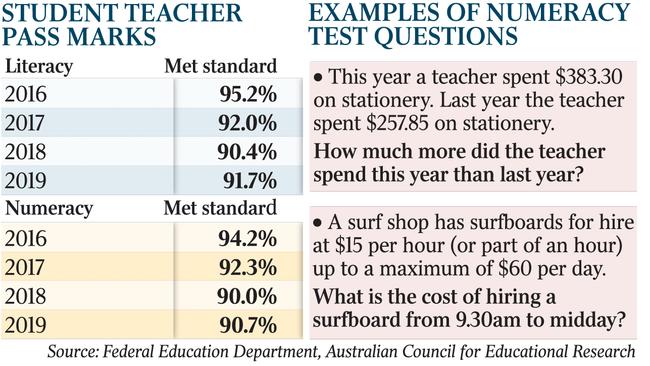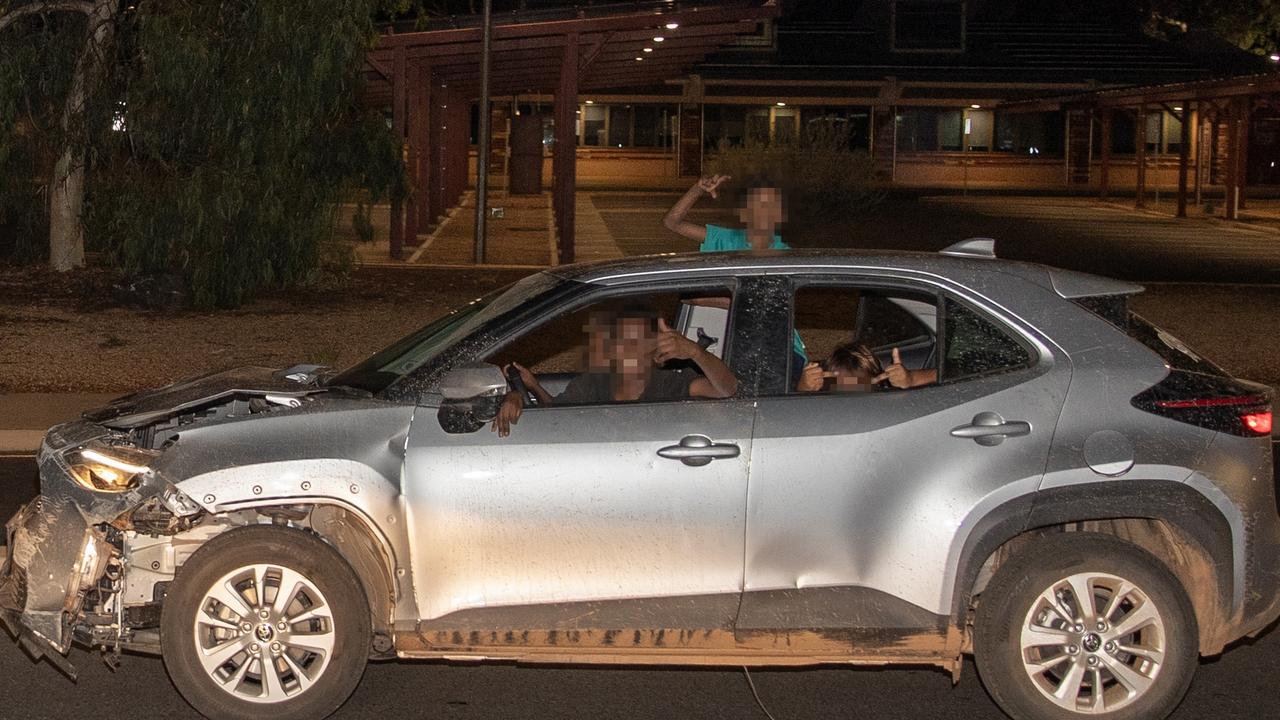One in 10 student teachers failing basics
Nearly 10 per cent of Australia’s aspiring teachers are failing to meet basic literacy and numeracy standards.

Nearly 10 per cent of Australia’s aspiring teachers are failing to meet basic literacy and numeracy standards, a significant deterioration in four years.
New test results for teacher education courses at universities show 9.3 per cent of students failed the numeracy benchmark, and 8.3 per cent failed in literacy.
Those results, from the 2019 Literacy and Numeracy Test for Initial Teacher Education Students, are a slight improvement from the previous year but much worse than in 2016 and 2017.
Education consultants, including MultiLit senior research fellow Jennifer Buckingham, told The Australian it was important to identify literacy and numeracy issues “much earlier” than at the end of a course.
“Universities need to show responsibility for passing the cohort not meeting the test requirements for passing them for four years and taking their money,” she said.
“It’s really important we identify problems with literacy and numeracy much earlier … these students put a significant investment into their studies, never mind public funding
“There is an argument this data shows LANTITE is doing what it’s supposed to and identifying these students … but it’s a real shame we need LANTITE at all.”
Universities have a choice on when education students sit the literacy and numeracy test, but most schedule the exam in the final year of the degrees.
The LANTITE results show 91.7 per cent of teaching students can read and write properly, an improvement from the 90.4 per cent recorded in 2018.
In 2016, 95.2 per cent of teaching students met that standard.
The results also show 90.7 per cent passed the numeracy standard in 2019, up from 90 per cent in 2018 but down from 92.3 per cent in 2017 and 94.2 per cent in 2016.
Education Minister Dan Tehan said standards for future teachers had to remain high — especially in the midst of the post-pandemic recovery — as he seeks to recruit more students into teaching, English and maths subjects at university through cuts to student fees.
“We need our teachers to have strong literacy and numeracy skills to impart that knowledge on to our children … as the chief scientist says, if you don’t have the basic skills you will never expand your learning,” he said.
“Our government introduced the LANTITE test to ensure teachers entering the profession have the skills they need to provide the best education outcomes for students.”
Proposed university reforms, which would lower the cost of priority degrees for students, would reduce the cost of teaching courses by 46 per cent, Mr Tehan said.
“We will also make it cheaper for students to study units in English, science and maths which will help improve the literacy and numeracy of future teachers.”
Mr Tehan is pushing state and territory governments, which hold more detailed information about literacy and numeracy problems, to provide clearer state-by-state data.
“The federal government continues to urge state and territory governments to release more detailed test data to provide greater transparency to students, families and educators,” he said.
State governments say the test results are largely kept by universities.
On Sunday, Queensland Education Minister Grace Grace said “any data collected through the test is not ours to share”.
The LANTITE, which requires teacher education students to reach a certain level of numeracy and literacy before being able to graduate, was introduced in 2016 following concerns about a lowering of academic standards and a decline in school performances compared with other countries.

The most recent rankings — the OECD’s Program for International Student Assessment released in December — showed the reading literacy of the nation’s 15-year-olds had fallen from fourth in the world in 2003 to 16th. In that time, numeracy figures fell from 11th to 29th.
Students typically have three chances to pass the LANTITE during the course of their degree, with many questions in the test requiring basic calculations.
The Australian revealed last month that hundreds of teaching students had petitioned Mr Tehan to remove the requirement to sit the LANTITE, claiming the testing authority was struggling to meet online testing demand — preventing them from graduating.
Blaise Joseph, an education research fellow at the Centre for Independent Studies, said the figures would likely improve now some states had introduced tougher standards for high school students applying to study education at university, but the final year was too late to sit the LANTITE.
“Some states are now putting in tougher minimum ATAR scores for teaching courses, and so we might see these numbers improve in the next few years as those students come through,” Mr Joseph said.
“The universities have the capacity to make LANTITE an entrance exam instead of putting it in the final year, as many of them are choosing to do now.
“Putting this test earlier would be a lot fairer … universities need to be doing the right thing.”







